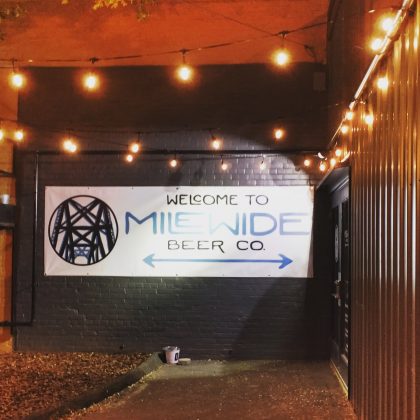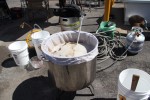 On May 8th, I had the privilege of participating directly in the American political process by joining the Brewers Association on their annual Hill Climb in Washington, D.C. With me were a gaggle of Country Boys who were in D.C. for Savor and decided to climb the Hill as well. This is a little bit a recap of the day but also a synopsis of our discussion topics so you, constant reader, can have a little better idea about some of the brewing-related issues going around our Capitol.
On May 8th, I had the privilege of participating directly in the American political process by joining the Brewers Association on their annual Hill Climb in Washington, D.C. With me were a gaggle of Country Boys who were in D.C. for Savor and decided to climb the Hill as well. This is a little bit a recap of the day but also a synopsis of our discussion topics so you, constant reader, can have a little better idea about some of the brewing-related issues going around our Capitol.
In all we had meetings with six of the eight members of Kentucky’s congressional delegation. Both Senators and four Representatives were on the slate. With Congress actually in session, it can be difficult to meet directly with a Member, but we got at least a little direct facetime with five of them. Three of those bothered to sit down and have a full discussion with us on our issues. In all, we spoke with Legislative Assistants to Rep. Thomas Massie, Rep. Brett Guthrie, and Sen. Rand Paul as well as directly with Rep. Andy Barr, Rep. John Yarmuth, and Sen. Mitch McConnell. In all they were all engaged and receptive to our discussions. The actual results remain to be seen.
There were two major current issues on which we focused the discussions, and when we had time and attention we touched on a few more things. The two major issues were the Small BREW Act, which aims to reduce Federal Excise tax on beer made by breweries producing less than six million barrels a year. The greatest reduction would be on the first 60,000 annual barrels, which would see a cut from $7.00/bbl to $3.50/bbl, and volume from 60,001 to two million would be reduced from $18/bbl to $16/bbl. The savings to Kentucky breweries would be substantial as we all could take advantage of that lowest and most significant tier of reduction. As the Kentucky delegation is, with only one exception, heavily Republican, tax cuts generally fit in their ethos, so it wasn’t difficult to get them on board with the principle of reducing taxes to help small businesses. Actually getting them to commit to co-sponsoring the bill was a little trickier, but I suppose we shall see how it goes.
The second major issue we discussed was a proposed FDA rule that would impact the way brewers deal with spent grains. As a result of the Food Safety Modernization Act, the FDA is making rules to change the way we treat our food’s food. Because many brewers give their spent grain to local farmers to be used as cattle feed, the proposed version of the rule would make us generate and maintain a rigid program for the drying, treatment, packaging, and storage of spent grains. Right now we basically put them in a bin and let the farmers come pick them up with a truck. The new rules would be so costly to implement that most brewers would probably start sending their grain to a landfill rather than going through the onerous process necessary to keep giving it to farmers. What we asked of the Members we met was for a signal to the FDA that spent grain from breweries was not meant to be within the scope of the rule in question and that we should have a clear exception in the rule when it is finalized. As elected officials from a state with a good deal of agriculture, everyone we talked to seemed to agree with our stance on the issue, and much to our surprise, most of them said they had already signed a letter that was circulating around Congress to accomplish just that. Hoorah!
When time permitted, we also asked the Representative or Senator if he would consider joining the Small Brewers Caucus. The Small Brewers Caucus is a bi-partisan, bi-cameral group of Members of Congress organized to show support of and to remain tied into the issues that impact America’s small brewers. This was sometimes a little harder sell because some Members of Congress don’t like to play their hands so openly, but it seemed like we may have added one or two over the course of the day. Lastly, we asked every Senator and Representative we spoke with to come by our breweries or some brewery in their district. Nothing cements the reality of a place in your mind quite like seeing it in person. We would love to tour them around our facilities so they see where the money is going, the business we do in Kentucky, and where their constituents are being put to work.
All in all, I believe, quite a successful day on the Hill. Until next time, faithful readers, thanks for reading, and happy drinks!
P.S. Remember to let me know if you have some specific topic you would like me to babble about next time. You can tell me in person, by e-mail, or in the comments right down below.





